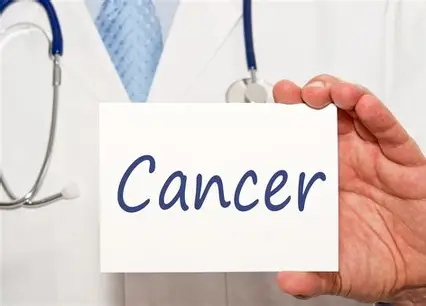Cancer Screening Program
Cancer Screening Program
Cancer is one of the leading causes of death worldwide, but the good news is that early detection can save lives. Many types of cancer begin silently without showing clear symptoms until they have advanced. A Cancer Screening Program is designed to detect cancers at an early stage, when treatment is most effective and chances of survival are much higher.
Dr. Harshad V. Joshi, a highly experienced Gastroenterologist in Mumbai, provides comprehensive cancer screening services. His program focuses on preventive care, advanced diagnostic tests, and personalized strategies to help patients reduce their risk and stay one step ahead of cancer.

Cancer Screening Program
- Early Detection Saves Lives: Identifying cancer in its initial stages allows timely treatment.
- Prevention through Polyp Removal: Some cancers, such as colon cancer, can be prevented by removing pre-cancerous growths.
- Improved Treatment Success: Early-stage cancers respond better to less aggressive treatments.
- Peace of Mind: Regular screening reduces anxiety by ensuring your health is being monitored.
Who Should Enroll in a Cancer Screening Program?
Cancer screening is recommended for both men and women, especially if you fall into the following categories:
- Adults above 40–45 years of age.
- People with a family history of cancer (colon, stomach, breast, or other cancers).
- Individuals with chronic digestive issues such as IBD (Inflammatory Bowel Disease).
- Patients with lifestyle-related risks: smoking, alcohol intake, obesity, sedentary lifestyle, or poor diet.
- Those exposed to environmental and occupational risk factors such as chemicals, asbestos, or radiation.
Types of Cancer Screening Offered
Dr. Harshad Joshi provides specialized screening for cancers related to the digestive system and beyond:
- Colon Cancer Screening
Colonoscopy is the gold standard. It allows direct visualization of the colon, detection of polyps, and their removal during the same procedure.
Other methods include stool tests (FOBT/FIT), sigmoidoscopy, and CT colonography.
- Stomach Cancer Screening
Upper GI Endoscopy helps identify ulcers, abnormal growths, or early signs of stomach cancer.
- Liver Cancer Screening
Screening includes ultrasound scans and blood tests (AFP levels) for high-risk individuals such as those with hepatitis or chronic liver disease.
- Pancreatic and Esophageal Cancer Screening
For patients with family history or chronic reflux, specialized endoscopic and imaging tests are used.
- General Preventive Screening
Blood tests, imaging, and health check-ups to identify risk markers for various cancers.
What to Expect During the Screening
- Initial Consultation – A detailed discussion about medical history, family history, and risk factors.
- Diagnostic Tests – Based on individual needs (endoscopy, colonoscopy, imaging, or lab tests).
- Results & Counseling – Clear explanation of results and guidance on next steps.
- Follow-Up Care – Lifestyle recommendations, preventive medications, or treatment if needed.
Book Your Session Today
Your health is your greatest asset, and prevention is the best protection against cancer. A Cancer Screening Program with Dr. Harshad V. Joshi – Gastroenterologist in Mumbai gives you the opportunity to detect risks early, take preventive steps, and ensure peace of mind for you and your family.
Book an AppointmentFrequently Asked Questions (FAQs)
Most adults should begin screening at age 40–45, but if you have a family history or other risk factors, earlier screening may be recommended.
The frequency depends on your risk profile. For example, colonoscopy is generally advised every 10 years for average-risk individuals, while high-risk patients may need more frequent testing.
Most screening procedures, such as colonoscopy and endoscopy, are done under sedation, so patients feel little to no discomfort. Non-invasive options like blood and stool tests are completely painless.
Yes. Some screenings, such as colonoscopy, can prevent cancer by removing polyps before they turn cancerous.
Eating a healthy, fiber-rich diet, avoiding tobacco and alcohol, exercising regularly, maintaining a healthy weight, and managing stress can significantly reduce cancer risk.
